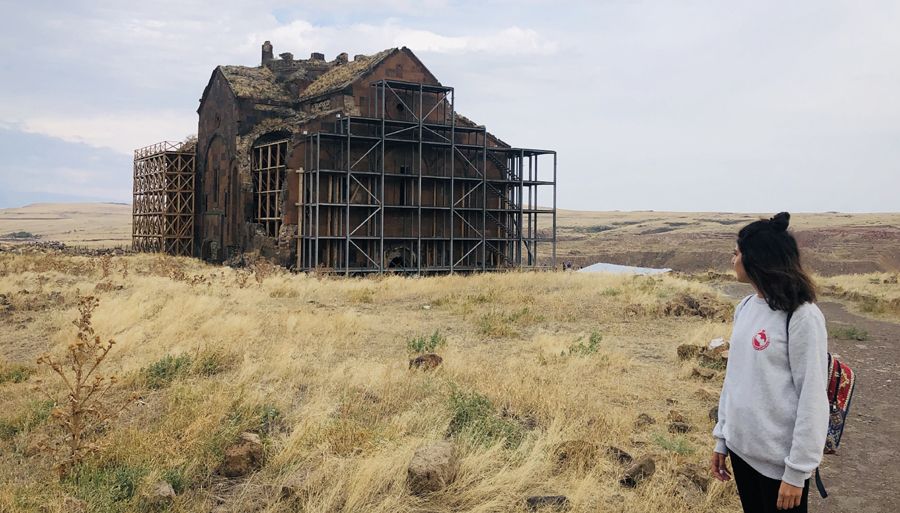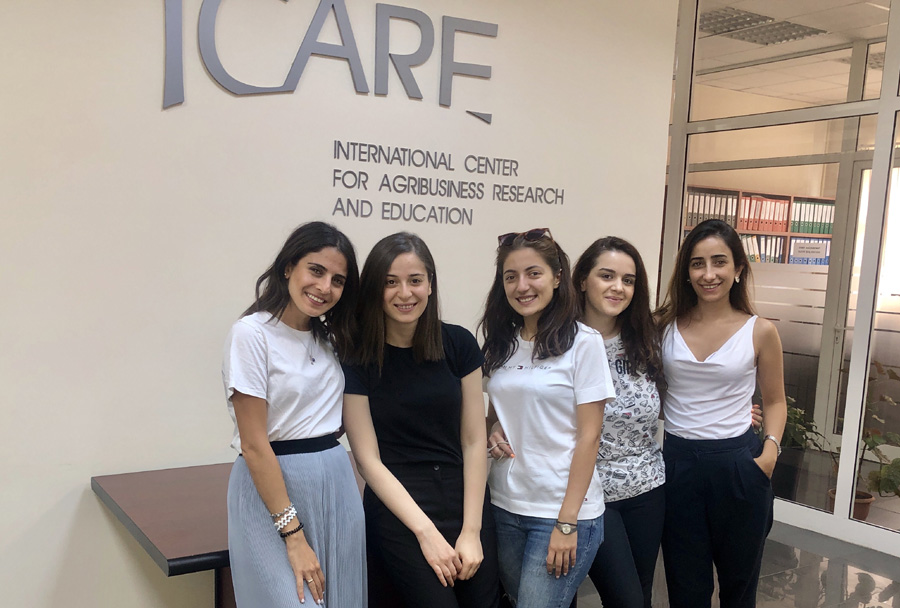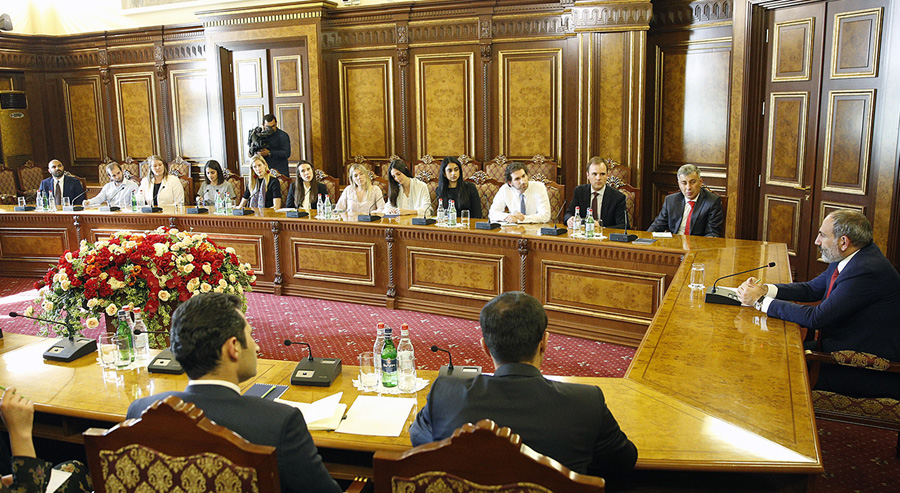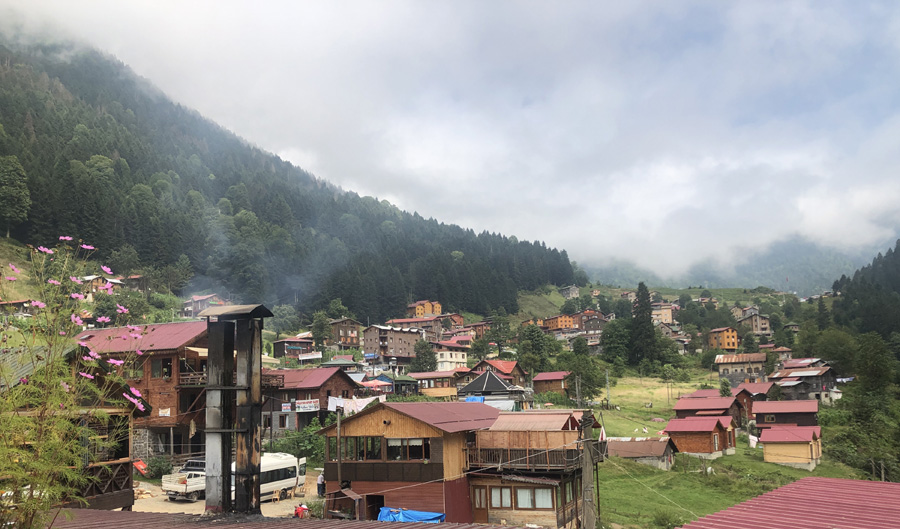A Journey Home

By Taleen Haneshian
Life is defined by a series of moments. The experiences we immerse ourselves in, give us perspective. They help us learn and, in the end, deeply understand ourselves and who we are.
This past summer was a journey of self-discovery. I decided to spend 3 months in Armenia with a goal of further understanding the people, immersing myself into the culture, living conditions and taking part in the daily routine. To my surprise at the time, I eventually extended my trip by 2 months – which in hindsight was one of the best decisions of my life.
Growing up, I was blessed to have been raised in a family that appreciates our roots, culture, traditions and history. Like many Armenian-Canadians, I grew up attending Armenian Saturday school, Church, Badanegan, AYF and volunteering in several organizations within the community. Needless to say, my Armenian heritage was and is a big component of my identity.
I had the privilege to travel to Armenia twice in the past but kept my tourist hat on; seeing the most iconic landmarks in the country and returning have the short 2-week visits. I have felt that these trips weren’t enough for me to fully understand the present-day Armenia. After closely following the Velvet Revolution from the palm of my hands, I was eager to re-meet Armenia. I decided to take a leap of faith and leave my full-time job in Toronto, to reconnect with my roots and give back through volunteer internships through a renowned program called Birthright Armenia.
I volunteered in a non-profit organization called FAST (Foundation for Armenians in Science and Technology). An organization that was working FAST (pun intended!) to bring the next most cutting-edge and innovative ideas to life. I had the opportunity to work on a large-scale innovation project that will be introduced to Armenia shortly, and even worked directly with the “Women Entrepreneurship Program” to help them prepare for their first pitch competitions. It was a unique opportunity for me to bring my professional experience in the technology industry from North America and learn from local talent – it was a two-sided learning experience. The Technology sector in Armenia excites me and I am impatient to see where it is headed- the opportunities are endless.
My experience went beyond working with the people in Armenia. I lived with a host family in the city of Yerevan to ultimately experience cultural immersion for a deeper understanding of the country’s locals; engaging in their daily life routines, cuisine and language (Eastern Armenian). My host family treated me like their own and shared the most accurate reflection of the country’s current realities. We discussed the good, the bad, our dreams, and reflected on current realities on a daily basis over a cup of mountain tea and kata. It was incredible to learn that though we were born and raised in different countries and cultures, we had so many similarities. I now call them my family in Armenia, and we keep in touch regularly.
My time in Armenia was limited to one month. I was eager to extend my ticket, however if it wasn’t for my MBA convocation at Queen’s University, I would have stayed. This did not hold me back from my decision to continue my journey in Armenia. I knew there was still more I had to do – still so much I wanted to experience and learn. In July, I returned to Armenia for another 2 months interning at the International Center of Agribusiness in Research and Education (ICARE).
At ICARE I had the opportunity to work with the professor as a Teacher’s Assistant to support students in preparing for their project management professional certification and contributed to the agribusiness journals and articles on behalf of the institution. I took part in several other projects, learned about the upcoming plans for the agribusiness sector in Armenia- all of which continue to assure me that this growing sector in Armenia has a bright and promising future.
My learnings certainly went beyond my role as a TA and Startup Consultant. I learned that volunteering in Armenia is certainly not a one-sided approach but rather a form of exchange- of knowledge and skills. I was humbled throughout my three months to learn from a group of bright, ambitious and visionary leaders in Armenia, with diverse backgrounds and education. I still reflect back on this experience and I am in awe of the incredible talent we have within the country.
My parents over the years always taught my sister and I about our history – where our roots stemmed from, the contributions of our people, the suffering they endured and how they have always persevered. I knew it all through the stories, I heard it from my grandparents as well.
During my time in Armenia, when I came across the Horizon Weekly advertisement for the trip to Eastern Turkey, I did not think twice about taking part in it. I knew it was time to see that part of our story firsthand.
Discovering Eastern Turkey was like meeting a sibling that has been adopted by foreigners. Its roots originated Armenian, but it has evolved into its enacting guardians. Ataturk’s photo found in the streets of Hamshen, the sound of Turkish baglama music coming from local restaurants, prayers sung from the newly built mosques and the country’s flags hanging from every corner of the streets.
There’s a feeling of eeriness in the village of Hamshen, Rize. Populated today with 30,000-40,000 Hamshetsis, this city took me by surprise on how developed it was for a village far from the country’s major cities. The people of Hamshen are a mystery to most of us. Most identified as Hamestsi, others as Armenians or Turks. Armenians have lived in these lands for thousands of years, and up until the 17thcentury, when they were forced to convert to Islam or to migrate. As we walked in the busy streets of Hamshen, I could hear the Hamshen dialect – an endangered language, mixed with Turkish, Armenian and Laz, echo through my ears. However, not a single familiarity of Armenian culture on the streets of Hamshen.
I was fascinated by my surroundings, but most notably the Tibet church found in Ardahan that dated back to 899. This church was bombed on several occasions even before the Armenians forcefully fled from the Genocide in the early 1900’s. It was once the major church in the region, but transformed into a mosque in the 16thcentury, now left to ruins after its most recent destruction in the 1950s. Tibet’s beauty lies in the details of the remaining structure. A star is found at the front of the church, which represents the Bagratuni Armenian dynasty of this region. This church resembled like the ones you’d find in the highlands in Armenia, but who would know? There were no traces of Armenian belongingness as the Tibet’s ‘kempet’ and any carvings of crosses had been destroyed. Not to mention, the tourist information board freely omitted this part of history.
This didn’t take me by surprise. All the Armenian sites that had some sort of remaining structure were not only destroyed or modified, but they’ve become a tourist attraction which excluded any reference of Armenian occupancy and existence in these lands. Moreover, it was common to see Turkish flags pinned down on all historical Armenian sites which left a message of possession to our ancestral belongings. A feeling of confusion and curiosity untangled as I started to see more throughout the trip.
The province of Kars resembles the city of Gyumri in Armenia, mostly from the similarities in architecture. A growing province, now home to more than 100,000 Turks, Kurds and Azeris. I’ve pictured these parts of our ancestral homes as backwaters, land that has been neglected and undeveloped since the brutal deportation of our people. But the reality is, it is far from that.

Visiting historical Armenia exposed me to an immense mix of feelings. Aside from feeling the deep pain, there was a feeling of peace and inner-healing when stepping foot on these distant treasures – almost as if I was returning on behalf of my ancestors.
There is no doubt that this trip deepened my connection and appreciation to my ancestors and roots.
I wish my grandparents were here, so I could share exactly what it felt like to go to the lands that their parents once called home. I wish I could share with them just how appreciative I am of their resilience and their fight for not only survival, but for also embedding a strong sense of identity in us.
As I look back on these past 3 months, I come back with even more faith for a prosperous Armenia. One that is thriving, one that has and will continue to endure and overcome the many obstacles which will inevitably lie ahead. I’ve learned through my experience, that Armenia is growing and writing its next chapter in its process of transformation. As a diaspora, we must trust the talented generations now and in the future that are working hard to develop new ideas and opportunities. Growth and development go hand in hand. We must be open to interact, exchange ideas and contribute to the betterment of our nation – to the best of our abilities.
I look forward to seeing all the great things we will accomplish in Armenia, together.
I know my journey with Armenia has just begun.…..



